Flowers come in many shapes, sizes, species, and colors. Pink is one of the top colors that people prefer when choosing flowers for gardens or bouquets.
We’ve put together a collection of 45 types of pink flowers. Many people are unaware that the color of a flower can hold significant meaning. Pink flowers have many meanings, and the symbolism can vary by flower type. In general, pink flowers symbolize femininity, romance, innocence, and joy.
Keep reading to learn about the meanings of 45 different types of pink flowers and where each species grows best.
Pink Flowers Infographic
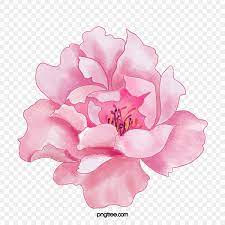
Pink Color Chart
Here is a color chart of thirty-six common shades of pink. We also provide the Hex number and the RGB (Red-Green-Blue) combination.
| Shade | Hex # | RGB |
| Pink | FFC0CB | 255, 192, 203 |
| Light pink | FFB6C1 | 255, 182, 193 |
| Hot pink | FF69B4 | 255, 105, 180 |
| Deep pink | FF1493 | 255, 20, 147 |
| Champagne pink | F1DDCF | 241, 221, 207 |
| Pink lace | FFDDF4 | 255, 221, 244 |
| Piggy pink | FDDDE6 | 253, 221, 230 |
| Pale pink | F9CCCA | 249, 204, 202 |
| Baby pink | F4C2C2 | 244, 194, 194 |
| Spanish pink | F7BFBE | 247, 191, 190 |
| Cameo pink | EFBBCC | 239, 187, 204 |
| Orchid pink | F2BDCD | 242, 189, 205 |
| Fairy tale | F2C1D1 | 242, 193, 209 |
| Cherry blossom pink | FFB7C5 | 255, 183, 197 |
| Light hot pink | FFB3DE | 255, 179, 222 |
| Lavender pink | FBAED2 | 252, 180, 213 |
| Cotton candy | FFBCD9 | 255, 188, 217 |
| Carnation pink | FFA6C9 | 255, 166, 201 |
| Baker-Miller pink | FF91AF | 255, 145, 175 |
| Tickle me pink | FC89AC | 252, 137, 172 |
| Amaranth pink | F19CBB | 241, 156, 187 |
| Charm pink | E68FAC | 230, 143, 172 |
| Mimi pink | FFDAE9 | 255, 218, 233 |
| Congo pink | F88379 | 248, 131, 121 |
| Pastel pink | DEA5A4 | 222, 165, 164 |
| New York pink | D7837F | 215, 131, 127 |
| Solid pink | 893843 | 137, 56, 67 |
| Silver pink | C4AEAD | 196, 174, 173 |
| Queen pink | E8CCD7 | 232, 204, 215 |
| China pink | DE6FA1 | 222,111,161 |
| Pink lavender | DBB2D1 | 219, 178, 209 |
| Tango pink | E4717A | 228, 113, 122 |
| Chilean pink | E8C3BA | 232, 195, 186 |
| Pale Dogwood | EDCDC2 | 237, 205, 194 |
| Rose pink | FF66CC | 255, 102, 204 |
| Shocking pink | FC0FC0 | 252, 15, 192 |
Pink Flower Symbolism
Many people consider pink to be the most romantic color of flower due to having less intensity of color than a deep red.
Throughout history, pink flowers have been a symbol of femininity. But modern sentiments now link pink with spontaneity or thoughtfulness.
Other meanings of pink flowers could be:
- Joy
- Happiness
- Youth
- Innocence
- Grace
- Gentility
- Adoration
- Gratitude
- Respect
The different types of pink flowers can also hold symbolic meaning. Some common pink flower types that hold significance include:
- Pink roses – respect, gratitude, or adoration
- Light pink hyacinths – playful or joyous
- Bright tulip blooms – life and a love of it
- Pink lilies – modesty and intelligence
Pink Flower Meaning throughout History
Over time, the meaning of things can change. Pink flowers are no different. What they mean today is not the same as in years past. Let’s take a look at what pink flowers represent in other times and countries.
Victorian Time (1837-the 1900s) – Europe
In Victorian times, flowers were a common way to send messages that would be too improper to speak. Pink camellias were a way to send a message to the receiver that you long for them.
As a symbol of “I will not forget you,” a pink carnation was given to a lover before a long parting. But if you wanted to hint to someone that they were foolish or just a fancy, you’d use pink larkspur.
Past – Present in Asia
In Asia, pink flowers hold different meanings. The cherry blossom is the country flower of Japan. It also symbolizes freshness, purity, and life’s external cycle.
The pink lotus represents Buddha and his life’s work on freeing humanity from endless suffering. In comparison, azaleas symbolize femininity and mothers. Chrysanthemums represent the afterlife and are common for funerals.
Types of Pink Flowers
Regardless of the occasion, pink flowers can make a lovely addition to spring bouquets. Pink flowers are also perfect for special occasions like Valentine’s Day, Mother’s Day, weddings, anniversaries, birthdays for younger females, or a thank you gift. Let’s look at the 45 different types of pink flowers.
1. Alumroot
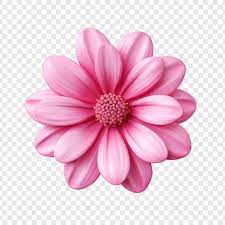
Alumroot, also known as Heuchera’ Lillian’s Pink’, is a perennial plant that grows in zones 4 through 9. It requires partial to full sun with well-draining soil.
This hybrid blooms from late spring through early summer in two-feet clumps of tiny pink flowers. Although attractive, Alumroot flowers do not hold any significant meaning. They are a lovely congratulations or welcome gift.
2. Aster
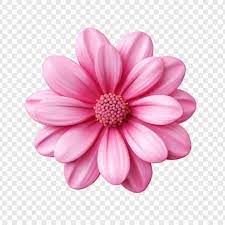
Asters – scientific name Asteraceae – resemble daisies due to thin petals and thick, protruding stamens. They require full or partial sun in zones 4-8. Asters are the birth flower of September.
3. Azalea
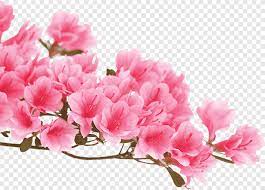
Azaleas, the scientific name Rhododendron, are a vibrant pink flower that represents femininity. Many people plant Azaleas for a privacy barrier due to their shrub-like tendencies.
These flowers bloom through late spring and summer, although some variances can start blooming around February. These plants need partial sun, well-drained soil and grow in zones 3-9.
4. Beard Tongue
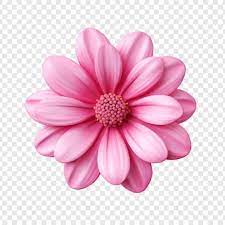
Beard Tongue – Penstemon – grows in zones 4-9 in full sun in the spring and early summer. These flowers attract hummingbirds, bees, and birds, so they’re a great gift for wildlife lovers in zones 3-9.
5. Begonia
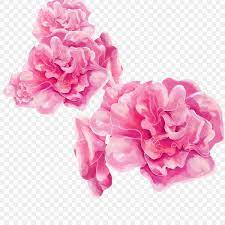
Begonias (Begonia is also the scientific name) come in over 1,800 varieties. They have a similar shape and look to roses and represent cautiousness. These flowers do well in partial sun and well-drained soil when indoors. They bloom from spring to summer in zones 9-11.
6. Blanket Flower
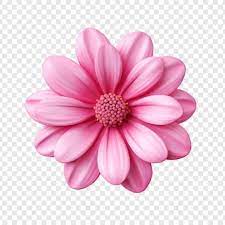
Blanket flowers, aka Gaillardia, symbolize joy, charm, happiness, and modesty. These plants need full sun and well-drained soil in zones 3-10. They bloom from early summer until after the first frost.
7. Bulbil Bugle-lily
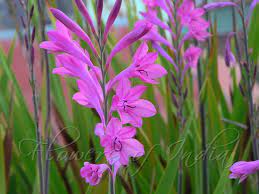
Bulbil Bugle-lily, aka Watsonia meriana, grows in zones 8-10 in full sun, blooming in late winter, early to late spring, or early summer. These drought-tolerant flowers are an attractant for hummingbirds.
8. Butterfly Bush
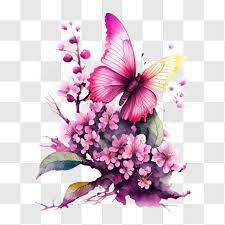
The Butterfly Bush, also known as Pink Delight or the scientific name Buddleja davidii’ Pink Delight’, is a favorite for attracting butterflies. This fast-growing plant forms medium to large-sized bushes, which produce clusters of tiny pink flowers, although lavender or purple flowers are more common.
Butterfly bushes are ideal for symbolizing new beginnings or rebirth. Plant these flowers in well-draining soil with full sunlight in zones 8 or higher to enjoy the view of butterflies coming into your garden from mid-summer to fall.
9. Calla Lily
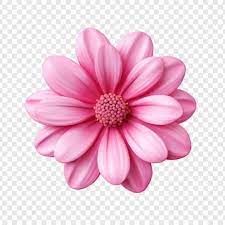
Calla Lilies, scientifically named Zantedeschia aethiopica, are perennial flowers that, despite the name, aren’t technically a member of the lily family. The genus Calla includes 28 species of flowers native to Africa.
Calla lilies grow between one and three feet tall and have a signature stamen and bloom that make them easily identified by sight. These flowers do best in full sun and loose, well-drained soil in zones 8 through 10. This flower is perfect for symbolizing beauty and innocence.
10. Carnation
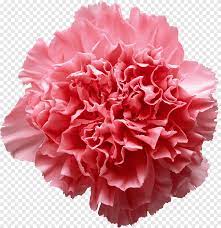
Carnations, or Dianthus caryophyllus, are naturally pink or purple. They’re edible and commonly used for garnishing dishes.
They do best in partial sun and fertilized, well-draining soil in zones 3 through 10 from late spring throughout summer. You can give carnations to signify unforgetfulness and gratitude.
11. Cherry Blossom (Prunus)
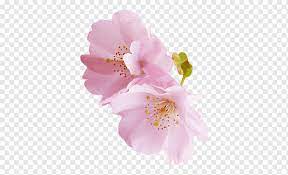
Cherry Blossoms, aka Prunus, are native to Japan and brought to the US in 1912 to sign good relations with foreign countries. Today, we use cherry blossoms to symbolize the beauty of spring and life.
During the blooming season, which starts around April, Cherry tree branches become heavy with sweetly fragrant pink flowers. These trees grow abundantly throughout zones 5 through 8, in the shade or full sun and sandy, well-drained soil.
12. Chrysanthemum
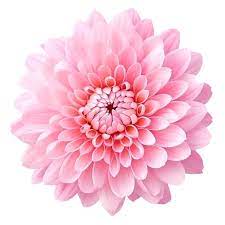
Chrysanthemums (same scientific name), or mums for short, are frequently used for fall to winter decorating due to their ability to thrive in cold temperatures in zones 5 through 9. These plants grow in full or partial sun in sandy, well-drained soil.
You can send pink chrysanthemums as a symbol of love or happiness. There are over 40 species of mums, which are native to China. Some cultures believe these flowers have medicinal properties that ease indigestion, sore throats, and pain.
13. Clematis (Pink Fantasy)
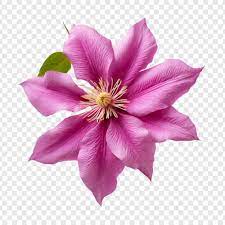
Clematis, aka Clematis Montana or Pink Fantasy, has climbing star-shaped flowers that bloom from spring through summer in zones 4-9. This flower represents artifice, mental beauty, and artifice.
14. Coneflower
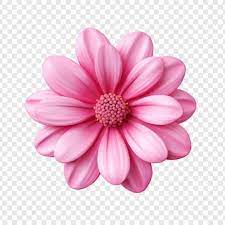
Coneflowers – Echinacea – are a drought-resistant species that grows well in zones 5-9, blooming throughout summer and fall. Butterflies are highly attracted to the conical stamens, which are easily accessed due to the drooping petals.
15. Cosmos
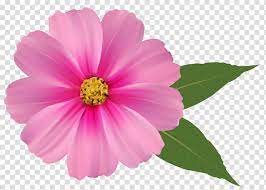
Cosmos – Cosmos bipinnatus – are symbolic of young beauty. They grow in zones 3-10 in full sun and have high watering needs.
16. Dahlia
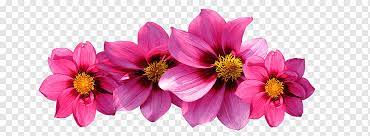
Dahlia (same scientific name) flowers are native to Mexico and grow in 42 different varieties. This flower species belongs to the Asteraceae family and is a relative of chrysanthemums.
Dahlias have some of the most elaborate and attractive petals, with some varieties having unique curves. You can enjoy their beauty from late spring through early fall. These flowers can grow throughout most zones 2 through 10 in full sun and rich, well-drained soil.
17. False Goat’s Beard
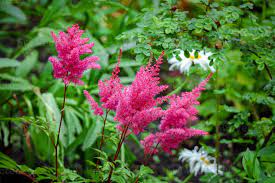
False Goat’s Beard, also known as Astilbe, are brilliant oddly-formed clusters of flowers with dull leaves. These flowers symbolize patience and grow in zones 3-9, blooming from spring through fall.
18. Hibiscus
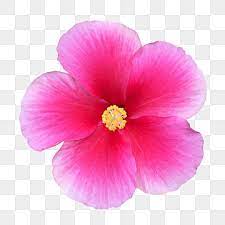
Hibiscus, known in the scientific community as Hibiscus rosa-Sinensis, screams tropical with a unique stamen that protrudes from the lacy pink petals. Known for their beauty and fragrance, hibiscus is commonly used for flavoring in drinks and food.
These Pacific Rim natives symbolize femininity and beauty. They thrive in zones 5-9 and higher in the right conditions of full sun and moist, well-draining soil. Enjoy these blooms while you can because they only last throughout summer.
19. Hollyhock (alcea rosea)
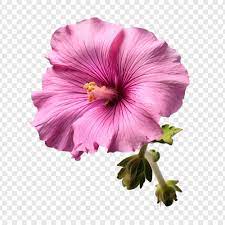
The long stalks of hollyhock make them perfect for growing up trellises or planted for privacy along fence lines. Hollyhocks need well-drained soil and full sun to reach their full glorious potential during the summer in zones three through eight.
Hollyhocks are symbolic of motherly love and fruitfulness.
20. Hyacinth
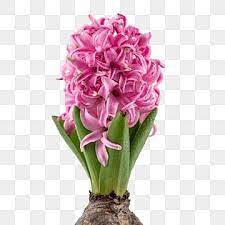
Hyacinths, scientifically labeled Hyacinthus, are beautiful Mediterranean-native flowers that are symbolic of playfulness. In the Victorian era, Hyacinths were significantly more popular than today.
These flowers need partial sun and well-drained soil in zones 4-9. You do need to plant the bulbs in the fall for them to flower in early to mid-spring. But always wear gloves when planting, as the bulbs are poisonous.
21. Hydrangea
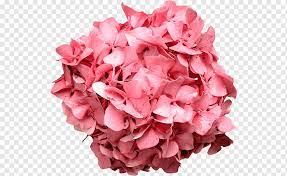
Hydrangeas, aka hydrangea macrophylla, come in over seventy varieties. Each species produces clusters of flowers – mini bouquets – against backdrops of bright green leafy bushes. Their lush appearance makes them a common choice for wedding bouquets.
These plants require a ton of water, hence the name “hydra” and represents true feelings. You can grow these bushes in zones 3 through 10, in partial shade to full sun using peat moss and sandy soil. Hydrangeas bloom from mid-spring throughout the summer.
22. Iberis
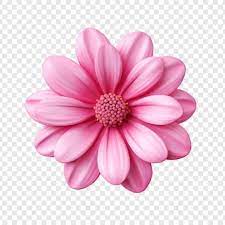
Iberis, aka candytuft, are short plants with tiny pink flowers and green foliage. They bloom during the spring in zones 3-8. These flowers represent indifference.
23. Lady’s Slipper Orchids
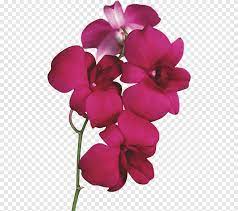
Lady’s Slipper Orchids, scientifically known as Cypripedioideae, grow in zones 1-11. These plants produce some of the showiest flowers of the orchid family and have medicinal purposes.
24. Larkspur
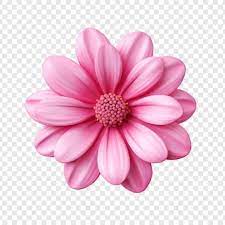
Larkspur – Delphinium – grows from zones 2-10 and represents love’s strong bond. It also symbolizes an ardent attachment to someone, an open heart, or the celebration of positivity. It can also mean contrariness and is the birth flower of July.
25. Lily of the Incas
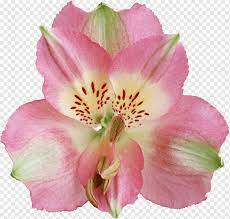
Lily of the Incas, aka Peruvian lilies, symbolize devotion and friendship. These flowers bloom from spring through fall in zones 7-10 with showy flowers perfect for cutting arrangements or grown to attract butterflies.
26. Lotus (Nelumbo nucifera)
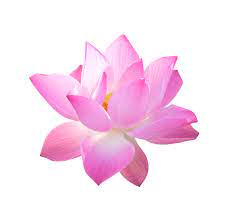
The Lotus, scientifically dubbed the Nelumbo nucifera, is a sacred flower among Buddhists, representing Buddha and his quest for enlightenment, which the lotus symbolizes. This flower also represents resilience, which is fitting since you often see them growing on top of muddy, murky water where nothing else could survive.
Lotuses need full sun and grow in water throughout summer. You can place them in ponds in zones 4 through 12. Or grow them in a container filled with water and pea gravel.
27. Meadowsweet (filipendula Rubra)
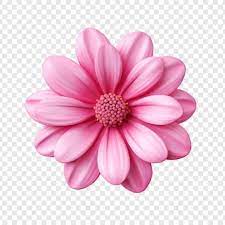
Meadowsweet, known as filipendula Rubra scientifically, are delicate clusters of pink flowers that form atop long stems. These flowers can grow to be between three and seven feet tall, making them a favorite species for decorating events.
These flowers represent courtship and have some medicinal purposes for treating digestive problems and colds. They require partial sun and well-draining soil through zones 3-8. You can enjoy these whimsical beauties from summer through early fall.
28. Orchid (Orchidaceae)
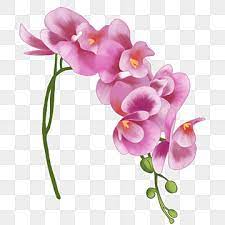
Orchid – Orchidaceae – applies to 25,000-30,000 different species, making it among the top popular flowering plants. Orchids have a unique, exotic look that represents beauty and luxury. They produce beautiful flowers in spring and autumn.
Orchids require full sun and well-drained soil and grow in zones 2-11. However, this type of flower is notorious for being difficult to grow. You have to do some research to provide the proper care for an orchid to thrive.
29. Oriental Poppy
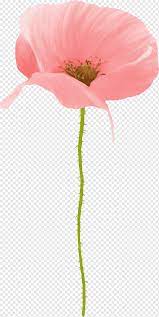
Oriental poppies symbolize eternity, peace, and death in most countries except Eastern cultures, where they are a sign of passion and love. These showy flowers grow in zones 3-7 from late spring through early summer.
30. Peony (Paeonia)
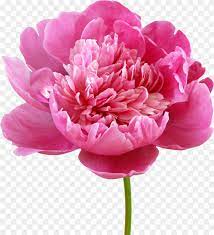
Peonies, aka Paeonia, are native of Asia, Southern Europe, and North America. With the proper care, peonies can live over one hundred years, continually producing large fragrant blooms commonly used for weddings and decor bouquets.
This flower represents honor and good fortune, and blooms from late spring through early summer. They require full sun and loamy soil conditions in zones 3 through 9.
31. Periwinkle
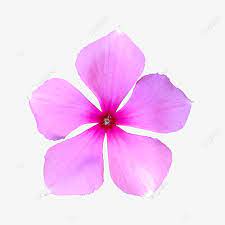
Periwinkles grow short and bloom year-round, in partial shade in zones 4-9. Pink periwinkles stand for everlasting love and romance.
32. Petunia
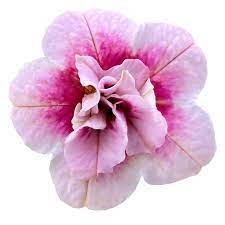
Petunia (same scientific name) is native to South America. You can find petunias in a wide range of colors and patterns; pink is the most common color. Many people plant these flowers in-ground flower beds or planters for attractive blooms from summer through mid-fall.
These plants require fast-draining soil, so they don’t become wilted and full sun. Petunias are one of the few flower species that can grow in all USDA hardiness zones. These flowers are a symbol of anger or longing.
33. Pink Rose
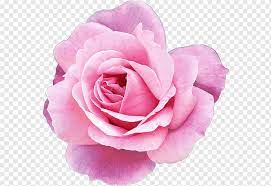
Roses are one of the most known flowers that really need no introduction. Roses, known scientifically as Rosa, typically represent love and beauty. But pink roses are often used to symbolize affection, admiration, and blossoming love.
These flowers can bloom from the middle of spring through fall and require pruning for the new blossoms to emerge. They do best in partial to full sun and well-draining soil in zones seven and higher.
34. Primrose (Oenothera)
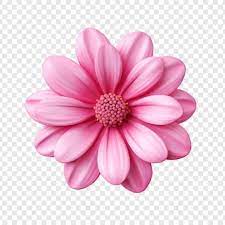
Primrose, aka Oenothera, are dainty flowers commonly referred to as pink ladies. These blooms are identifiable due to their petals – deep or pastel pink that fades into a light circle surrounding the bright yellow stamen.
These low-maintenance flowers do best in partial shade in well-drained soils throughout zones 2 through 8. You can enjoy their delicate blooms from early spring through summer. Primroses represent attachment and young love.
35. Ranunculus
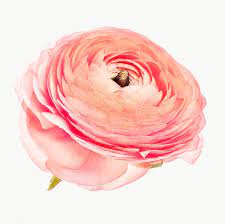
Ranunculus produces hot pink flowers that represent attractiveness and charm. They grow in zones 4-10 and winter hardy from 8-10 but will not survive winters outdoors in zones 4-7.
36. Rocktrumpet (Mandevilla)
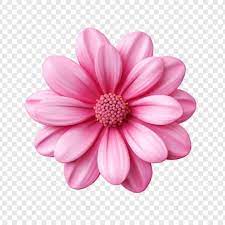
Rocktrumpet, more commonly referred to as the scientific name Mandevilla, has a tropical look that’s excellent for creating a virtual garden using fences, trellises, or buildings. Some varieties can grow over 15-feet tall, while the Mandevilla Sanders only grows 2’-7′ tall.
These flowers, which symbolize whimsy, bloom from summer until early autumn in zones 9-11. They require full sun and well-draining soil. If planted in a colder climate, these plants must come indoors for the winter.
37. Snapdragon (Antirrhinum majus)
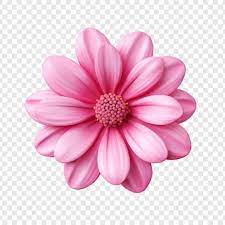
Snapdragons – Antirrhinum majus – are a symbol of protection and grace. These flowers got their name due to the blooms’ formation, which looks like a dragon’s nose and open mouth. Each stem holds a cluster of bright pink flowers that contrast brilliantly against the green leaves.
This flower species prefer cooler temperatures, waiting until fall before blooming and lasting until spring. They require well-drained soil and full sun and do well in zones 7-10.
38. Spider Lily (Lycoris)
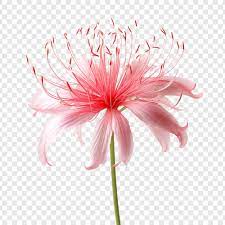
The Spider Lily, also known as Lycoris, is symbolic of the afterlife. These plants feature long thin stamens that look like a brightly colored spider and stunning pink petals; there’s also deep red or white versions. Spider lilies form gorgeous blooms on the end of long stems with no foliage.
These flowers are toxic for animals, so use care when planting around pets. They need partial sun and well-draining soil in zones 4-11. You can enjoy these unique blooms from the end of summer into fall.
39. Stargazer (Oriental Lily)
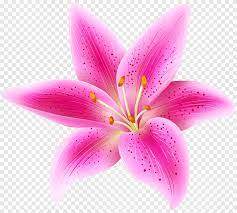
The Stargazer, aka Oriental Lily or the scientific name Lilium Orientalis ‘Stargazer,’ has stunning hot pink petals with dark pink dots that make it common for bouquets and floral arrangements.
Although beautiful, these plants are poisonous to both children and pets. Stargazer flowers represent wealth and ambition and grow best in zones 4-9 during the summer. They need soil that’s well-drained and partial to full sunlight.
40. Statice
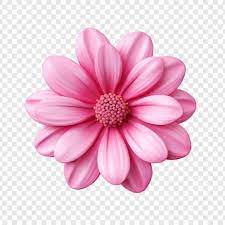
Pink Statice flowers are common in bouquets due to symbolizing love, romance, kindness, and subtleness. They grow in zones 8-10 in small clusters of flowers from mid-summer to fall.
41. Sweet Pea (Lathyrus odoratus)
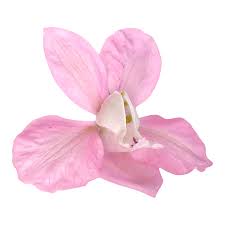
Sweet Peas, also referred to scientifically as Lathyrus odoratus, are tiny pink blooms with a sweet fragrance used to make lotions, soaps, and perfumes. The dainty flowers form on thin stems covered with small green leaves.
The attractive scent and beautiful flowers make Sweet Peas a frequent inclusion for wedding bouquets and gardens. Symbolically, this flower represents jubilance. They require partial to full sun and moist but well-draining soil. Sweet Peas are another rare flower that can grow in all hardy zones, flowering throughout summer.
42. Tulip
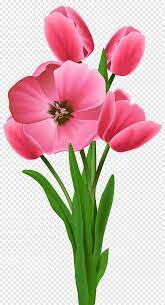
Tulips, otherwise known as Tulipa, are often used for Mother’s Day bouquets due to growing from late-March into the middle of May and because they’re representative of nurturing and true love. Many people also use tulips for celebrating Easter. Tulips are symbolic of caring, good wishes, or endearment.
These flowers require full or partial sun and well-drained soils, growing in zones 4-10. People worldwide travel to Holland to see dramatic fields of pink and different colored tulips at the Tulip Festival.
43. Wisteria
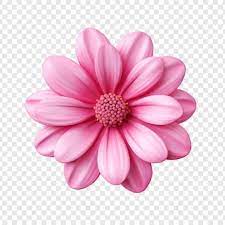
Wisteria vines have a sweet fragrance that appeals to butterflies. These flowers grow on vines up structures and become heavy with pale pink flowers. Wisterias represent immortality and long-life. In Japanese theater, it means support, tenderness, bliss, sensitivity, and sensuality.
44. Yarrow
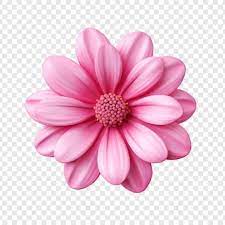
Yarrow is one of the oldest plants used for medicine globally, with over 100 species in North America, Europe, and Asia. They have leaves resembling ferns and flat, aromatic pink flowers. These flowers are symbolic of protection, good luck, healing, and success.
45. Zinnia
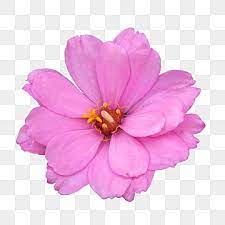
Zinnias, scientifically named Zinnia elegans, have various formations, allowing for a range of looks. These flowers can have petal arrangements with single, semi-double, or double rows for a thick, clustered look.
This flower species is resistant to droughts and humidity, allowing it to grow in zones 3-10, in full sun and loamy or sandy soil throughout the summer. Zinnias represent longevity and friendship.
Conclusion
Pink flowers aren’t just beautiful to look at but also hold many significant meanings. There are even some occasions when pink flowers would be better than other colors. We’ve identified 45 different types of pink flowers, the ideal growing conditions, and the symbology. The next time you send flowers to someone, pick a pink flower that holds the proper meaning.

